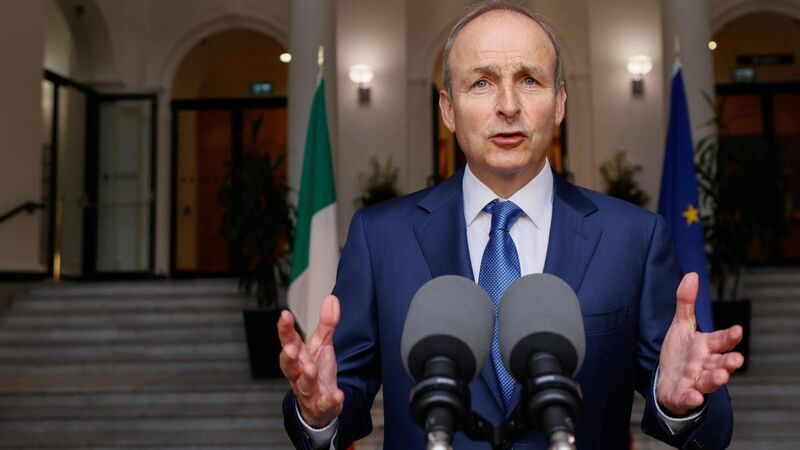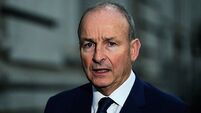Alison O'Connor: Understated Micheál Martin deserves some credit for his service to this State

Surely nobody celebrated Micheál Martin's state of the nation address on Tuesday — but many would have quietly reflected that the Taoiseach's steady calm and dignity have helped him serve his country during a period of unprecedented crisis. Picture: Julien Behal
That is so what happened after Taoiseach Micheál Martin finished his speech to the nation on Tuesday night detailing the lifting of virus restrictions.















